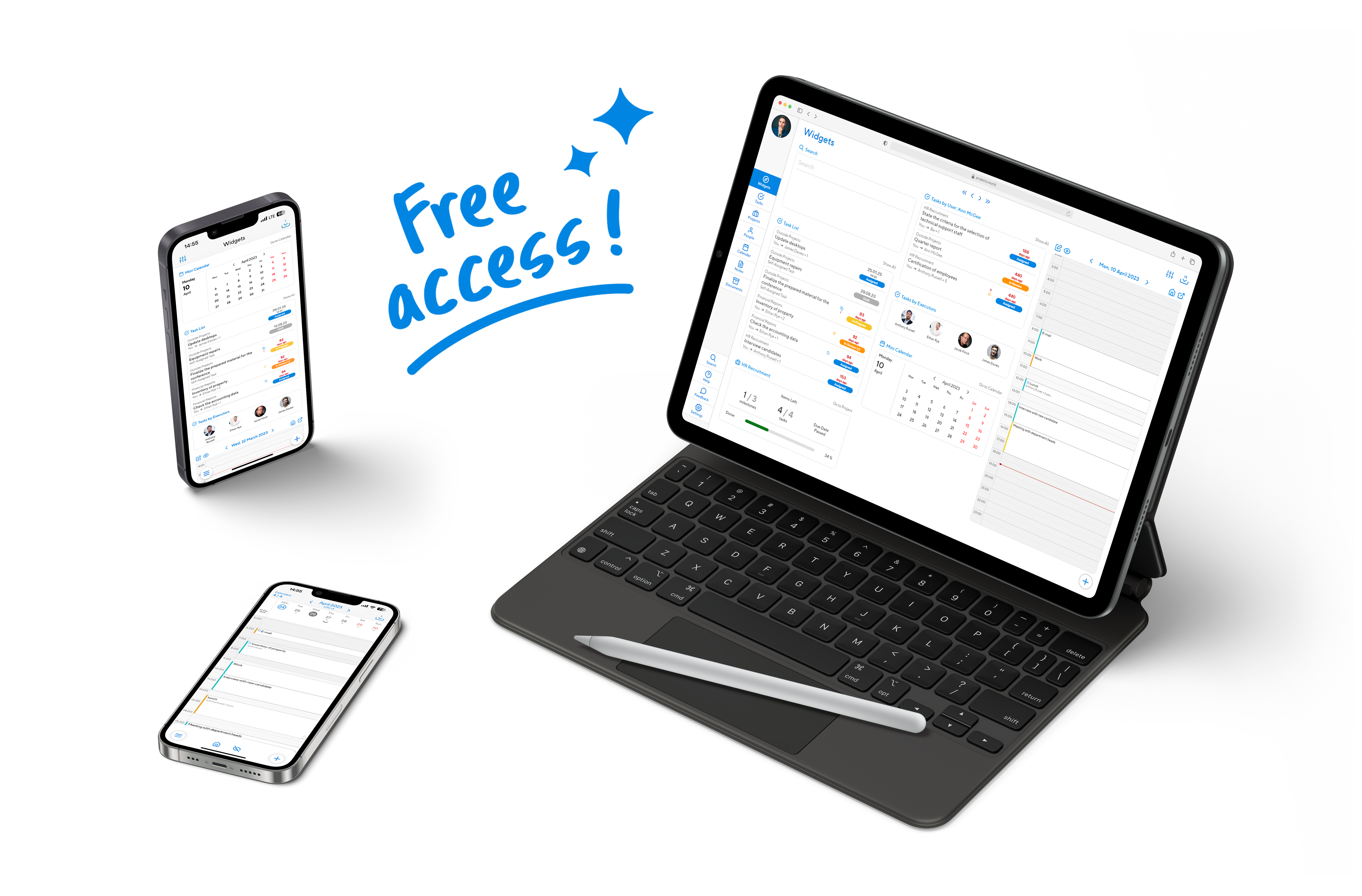Weekends are weekends, but in some industries it is unacceptable for businesses to stop their work. This issue is especially acute when the number of non-working days is very large, for example, by adding extra days off to Saturday and Sunday, as it happens on Christmas holidays.
Let’s take a closer look at what work can be stopped without causing problems, which departments and services should be left in place, and how to establish communications and work processes during the absence of managers and/or head office staff.
Planning work for holidays in retail enterprises
The main challenge is minimizing the number of staff providing the most important functions involved in the ongoing operation of a company or product.
For example, if you have a web service (online shop), retail sales or servicing wholesale customers, you should have strictly distributed:
- Staff units that ensure the execution of critical functions so that business processes do not stop, this applies to continuously operating businesses. For example, support specialists, salespeople, cashiers, warehouse workers, first-line managers.
- Units that are called in for emergencies and problems in individuals on the first list. For example, supply clerks, health and safety specialists, system administrators.
- Employees who have a full holiday — accounting department, office staff (logisticians, product category managers) and others.
The head of the company draws up an order that formalizes the proposed scheme of work and communicates it to his subordinates.
The company’s customers also need to know what they can count on and what they cannot count on. Therefore, it is necessary to organize notification of customers, for example, with the help of classic announcements at the entrance (for offline shops), with the help of mailings (email, SMS, Telegram) or with the help of posts in social networks. It all depends on your working format and where your main target audience is represented.
The announcement should state:
- Work schedule, if it is changing: for example, there will be a reduced day.
- Functions and capabilities that will be unavailable. For example, a sales department that serves only legal entities will not be available.
- The period during which the designated restrictions apply: for example, specify the date on which the company will return to normal operations.
Many marketing campaigns — discounts and promotions — are often organized on holidays. At the same time, marketers themselves usually go on their official days off and do not participate in the organization of promotions.
That is why even before the managers leave for the weekend, it is necessary to check the correctness of promotional prices, the absence of negative margins, the availability of promotional materials in the field and other things. If something goes wrong already during the promotion, it will be difficult to call a manager back from a legitimate weekend.
Work of top managers and middles on holidays
A lot depends on what category of customers your business is working with. If sales are retail, it is quite logical to expect an influx of visitors. Accordingly, many managers (shop director, his deputies, heads of departments) will be useful in the workplace.
But if your customers are mainly legal entities and wholesalers, it is logical to leave a maximum of one employee on duty during the holidays, who will be able to solve typical issues without administration. 99% of legal entities will not come to you for services and/or goods on public holidays and weekends.
In fact, in many trade enterprises, you can often find a manager on duty who is responsible for resolving disputable situations regardless of whether it is a public holiday or a weekday.
This is convenient and economically justified, because any employee called in on their day off or on an official holiday should be paid double according to the labour law.
It turns out that any top manager on holidays can cost the company twice as much, while managers already have the highest salaries compared to ordinary workers.
How to close the issue of effective management in the real absence of ‘tops’ and even ‘middles’?
It requires that the company, teams or relevant departments use specialized software for controlling and planning tasks, such as Projecto.
How Projecto will be useful for optimizing work during the holidays
- At any moment in time, rank-and-file specialists will be able to see the tasks they are facing and track deadlines, reconcile checklists, send completed tasks for control, mark them as completed, and more.
- Top managers can keep their finger on the pulse even on their days off. Thanks to a convenient mobile app, they will have their work and operational control over the state of affairs literally in their pocket.
- In case of problems, managers will receive instant notifications and can issue corrective instructions if the situation is easily resolved without personal intervention.
- Business owners can monitor the overall progress of the business and become personally certain at any time of the day or night that everything is in order. Projecto works around the clock without holidays or weekends.
- Projecto also provides a common space for meaningful communication in any work format (everyone together in one office, remote employees, dispersed departments in different regions, etc.).
To make it clearer, just check out the Projecto demo — here.
So, as briefly as possible. In order to optimize work during the holidays, you need to define the lists of those who will work (the first group) and those who will rest (the second group). But the most important thing is to make sure that there will be no problems in the work of the first group due to the fact that the second group will be ‘out of access’. In addition, you need to be sober about the budget for the holidays, because if you have an ongoing business, labour costs for holidays are automatically doubled.
